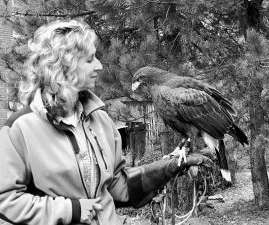“The Hawk’s Way” — a book review
10,000 Birds
MAY 9, 2022
As Montgomery shows, falconry is different from any other human/animal interaction. It’s not clear from the book’s ending, but it sounds like she abandoned her nascent apprenticeship because of her traveling schedule, her marriage, and her own chickens who would certainly be killed if she kept a hawk.











Let's personalize your content